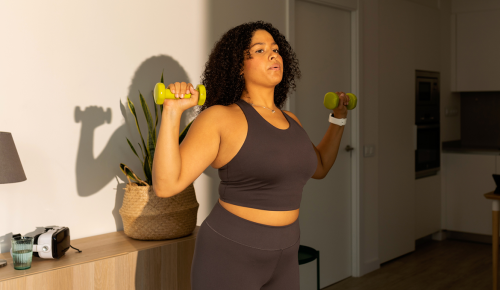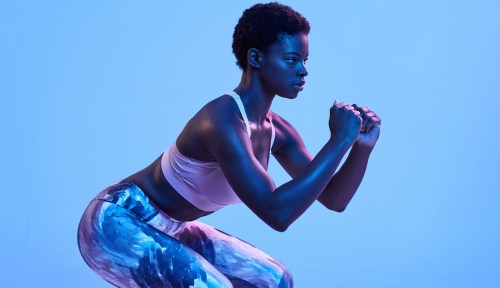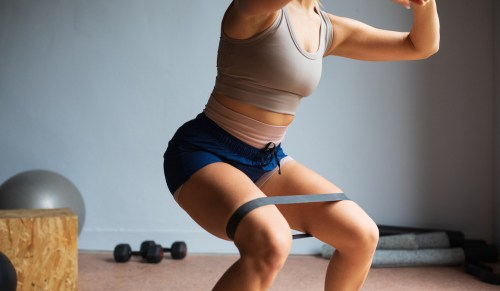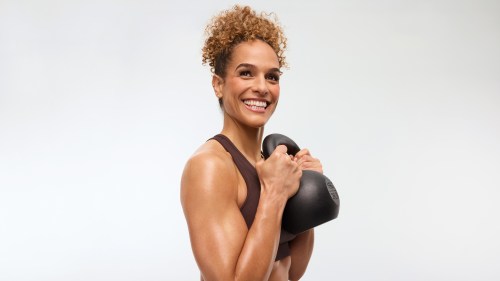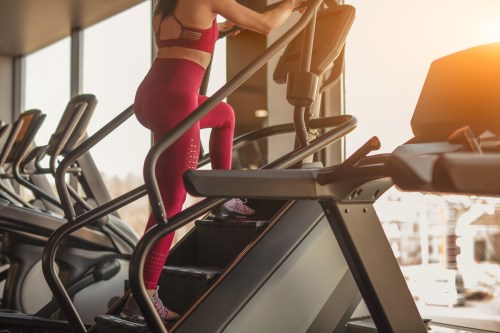Our editors independently select these products. Making a purchase through our links may earn Well+Good a commission
There’s nothing wrong with enjoying a glass of wine or going out and catching up over drinks with your friends. But when you’re training, too much alcohol can disrupt your sleep, and as a result, can cause muscle inflammation, making you feel sub-par as you head into your workout, according to Samuel Chan, PT, DPT, ATC, CSCS, a physical therapist at Bespoke Treatment in New York City. Here’s what to know about the connection between alcohol and muscle inflammation.
Experts in This Article
Samuel Chan, PT, DPT, ATC, CSCS, is a physical therapist at Bespoke Therapy located in New York City.
How alcohol disrupts sleep
Sleep is necessary because it allows you to recover from mental and physical fatigue that occurs due to your daily activities. According to a 2015 study focused on the effects of alcohol on sleep, sleep is a time when your body is able to regenerate, which aids with memory, energy, and muscular development.
As you probably already know from personal experience, a lack of sleep and a poor quality of sleep can be linked to stress, fatigue, and mood disorders, in addition to chronic diseases like heart disease, type II diabetes, and musculoskeletal disorders, according to the same study and the Centers for Disease Control and Prevention.
“We often think that alcohol can help us fall asleep better, but that couldn’t be further from the truth. After drinking, our livers are working hard to metabolize the alcohol in our bodies—this disrupts REM and deep sleep, which is vital for recovery and restoration,” explains Dr. Chan. Heavy drinking can also contribute to impaired gut and liver function, says Dr. Chan, “which in turn leads to systemic inflammation throughout the body.”
How alcohol contributes to muscle inflammation and impacts performance
Aside from feeling sub-par from a lack of sleep, you may also begin to notice that your body is sore, tender, swelling, or that you’re experiencing more pain than normal—all signs of inflammation, according to Dr. Chan.
“Direct effects of acute alcohol consumption on fitness and performance include decreased motor coordination, impaired balance, delayed reaction, and more,” he says. Not only can this hinder performance, but it also can put you at a greater risk for injury if you aren’t mentally and physically sharp as you train.
Your aerobic performance (think cardio-centric activities like running, brisk walking, and cycling) may also be disturbed due to lactate metabolism, which is essentially your body removing lactate, a byproduct of exercise, Dr. Chan explains, from the bloodstream and using it as fuel. Alcohol can negatively affect this process which means there will be an increase of lactate in your body, resulting in fatigue and decreased power and muscle performance, he says.
“If you are consistently training with elevated levels of inflammation, you may feel increased fatigue, decreased performance or output, lethargy, and stiffness in muscles,” explains Dr. Chan. Instead of ignoring these feelings, he says to listen to what your body is trying to tell you which is that you’re overtraining, not sleeping and recovering well, or may even be dehydrated.
Tips to reduce and prevent inflammation
So, what do you do if you enjoy drinking every now and then but also want to bring your A-game to every session? Dr. Chan says you don’t have to cut alcohol out entirely, but moderation is key. When you do drink, he advises staying hydrated by drinking water in addition to your alcoholic drink. And if possible, try to plan for a couple of hours between your last drink and your bedtime as it usually takes one hour for your body to metabolize a single serving of alcohol.
You should also try your best to get quality, deep sleep. This is important because quality sleep—seven to nine hours for adults—allows for human growth hormone to be released, which promotes healing, recovery, and the repair of tissues.
Another way to control inflammation is by using recovery tools such as massage guns ($199), foam rollers ($10), and compression boots ($899), because these modalities improve circulation, blood flow, and deregulate or relax the nervous system.
Bottom line: If you have a big workout coming up, or you’re training for a race, being mindful of your alcohol consumption can lead to less inflammation and better performance.
Relax your body and mind with this 30-minute yoga flow:
Oh hi! You look like someone who loves free workouts, discounts for cult-fave wellness brands, and exclusive Well+Good content. Sign up for Well+, our online community of wellness insiders, and unlock your rewards instantly.
Sign Up for Our Daily Newsletter
Get all the latest in wellness, trends, food, fitness, beauty, and more delivered right to your inbox.
Got it, you've been added to our email list.


